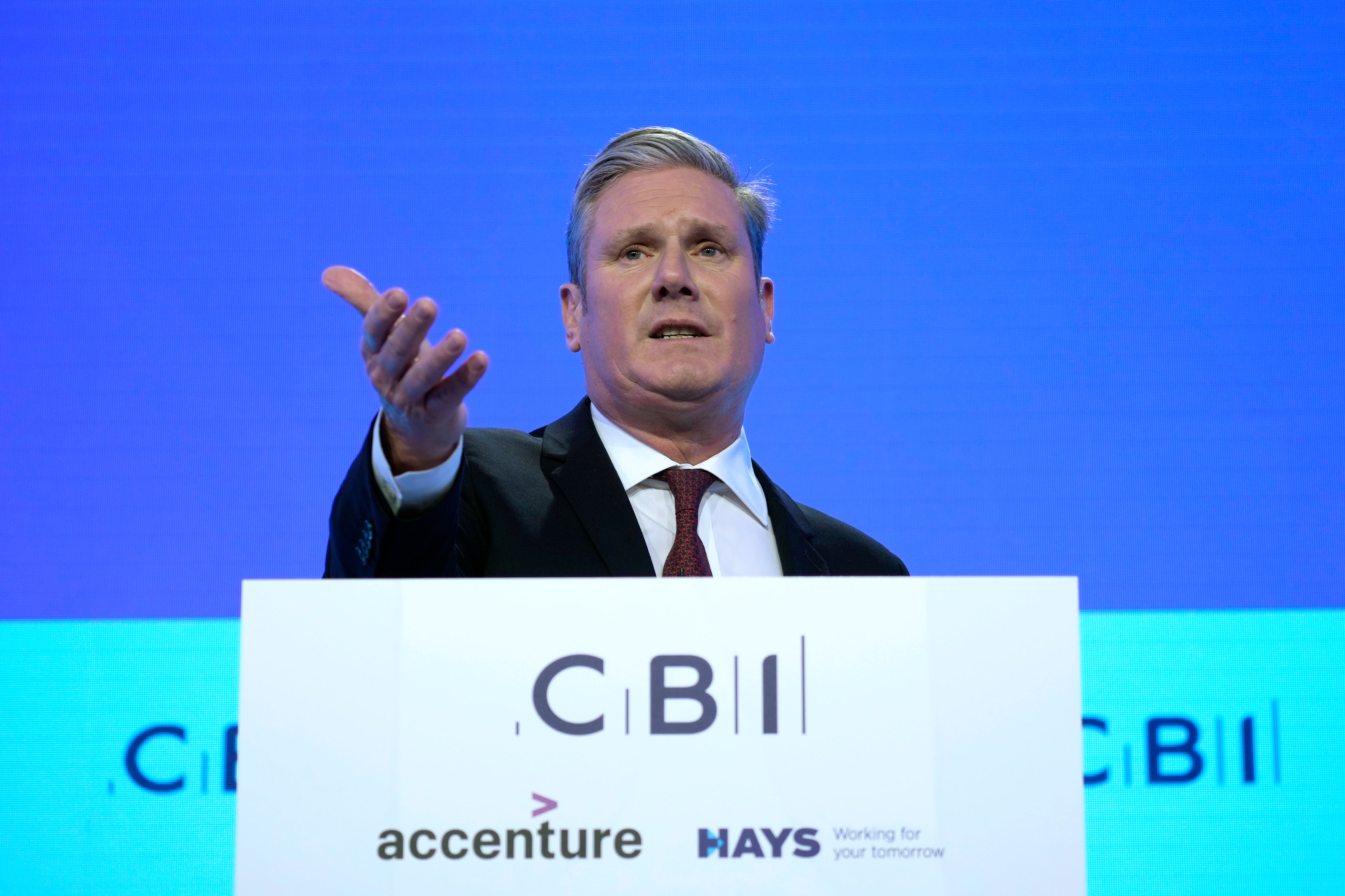Is Keir Starmer’s Labour making peace with voters on Brexit and immigration?
There are several snags in wooing red wall voters back to Labour on the matter of migrant workers, says Sean O’Grady


For a man who used to hold such contempt for Brexit and all it stood for, and has spent much of the past few years criticising it, Keir Starmer’s conversion to one of its central tenets has a certain Damascene quality. Rather than viewing membership of the EU single market and the attendant freedom of movement as a great source of economic growth, as he seemed to believe it was before, he is now attacking the very notion of it.
“It’s not about Brexit,” he says. Given that the issues of migration and freedom of movement were so intertwined with Brexit, and still are, that’s not entirely convincing. Still, Starmer’s message is clear – that some skilled migration is OK, but not the kinds of changes to the labour market seen in recent decades.
“The days when low pay and cheap labour are part of the British way of growth must end … our common goal must be to help the British economy off its immigration dependency, to start investing more in training workers who are already here,” he said, addressing the CBI’s annual conference in Birmingham on Tuesday.
As usual, Starmer left himself some freedom of manoeuvre – for example, when he talked about the recent shortage of lorry drivers: “We can’t have a situation, as we did with HGV drivers, where temporary shortages threaten to cripple entire sectors of our economy. That would be anti-growth and anti-business.”
So foreign labour can still come in in certain circumstances, and the points-based system can be loosened, but in return Starmer would require businesses to do more. “We will expect you to bring forward a clear plan to boost skills, and [offer] more training; for better pay and conditions; for investment in new technology,” he told the CBI. “We can talk about how this is done – dialogue is at the heart of partnership – but negotiation with trade unions will be part of it.”
That’s probably not what the CBI had in mind, and is probably even less welcome than the similar message Rishi Sunak delivered on Monday. The brief hope, fostered by government briefings, that Brexit might be tempered with some sectoral Swiss-style deals with the EU – including freedom of movement – is dead. Not even the opposition is going to help companies fill their vacancies quickly.
The politics of Starmer’s more vocal migrant-scepticism are obvious. The red wall seats he needs to win back defected first to Brexit and then to the Tories because voters blamed migration for stagnant wages, higher housing costs, and pressure on public services. They may have since grown disillusioned with both Brexit and the Conservatives, but that doesn’t mean they’ll vote Labour. They are no longer convinced, if they ever were, that the Tories can be trusted on migration, but that doesn’t mean they trust Labour. So the more Starmer reassures them, the more likely they are to return.
However, there are a few snags. First, many in his own party want Starmer to make a stronger case for closer links with the EU, including freedom of movement – indeed, some would like it if he capitalised on the shift in public mood by campaigning to rejoin the EU. But Starmer may as well make the best of accepting Brexit as a done deal; why court unpopularity over immigration when rejoining the EU is not going to happen anyway?
The other problems are more practical. They will only start to matter once Labour is in government, but they will need answers as the election approaches. If migration boosts economic growth, why not have more of it? Are there sufficient British workers in the right areas who are amenable to training to fill the vacancies? Who will do the low-paid menial jobs the British don’t want?
Is it really true, as Starmer suggests, that migrants stymie the adoption of robots in British industry? How will Labour control so-called illegal migration if it provides safe and orderly routes for valid claims for asylum, which could easily run into many thousands? Does Labour have any idea what sort of total number would be acceptable? More or less than recent levels?
Starmer and his party must be getting very tired of Tories accusing them of having an “open door” policy on migration, characterised by “unlimited” numbers – so the appeal of a voter-friendly policy is understandable. After defeats in four successive general elections and a referendum, perhaps Labour is making peace with an electorate that has made its feelings on migration clear. Despite some shifting attitudes amid chronic labour shortages that are causing stagnation, higher taxes and worse public services, immigration is still something voters viscerally dislike. As with Brexit, Starmer is trying to learn to live with that unpalatable political reality.



Join our commenting forum
Join thought-provoking conversations, follow other Independent readers and see their replies
Comments